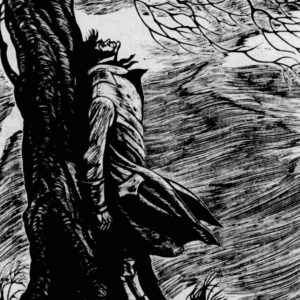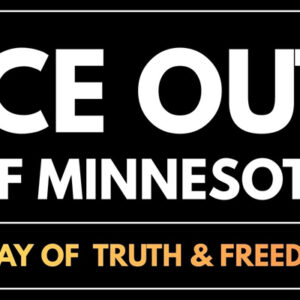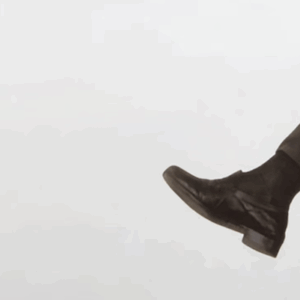
Who Can Fictionalize Slavery?
On Writing Across Time and Race
There is much to be said on the issue of who is allowed to write whom, that thorny thicket from which no white/male/cisgender/otherwise-privileged writer emerges unscathed (nor should they). But if we can place that debate in a corner, temporarily and with great respect, I want to address a narrower topic: how to write about antebellum American slavery through the voices of the enslaved. This is not about writing across racial lines (though it can be), but across historical ones. First things first: there is no way. We can’t know. Reading Thomas Jefferson’s letters won’t get us there. Interviewing survivors of modern slavery won’t help. Even 19th-century slave narratives afford only a sliver of light, written as they were by the lucky few—those who got the hell out—and filtered through the abolitionist press. To write about an enslaved person from the 17th or 18th or 19th centuries is to acknowledge one’s own utter and nearly incapacitating ignorance.
“Nearly” being the operative word. Because if ignorance really did prevent fiction writers from taking up an unfamiliar voice, what would be left in the canon? Thinly veiled autobiography? Knausgaard? Forgive me if I don’t find that entirely satisfying. I don’t think I’m in the minority when I say that I read to discover. To be surprised. To learn. My instincts are the same when I take up the pen.
As an (ex-)historian of the early American South, what do I most want to fathom? How one could survive in a fundamentally racist and sexist (and increasingly classist) society without some claim to power. How women and the poor and the enslaved carved lives for themselves out of the sheer cliffside of Patriarchy and Privilege. This kind of perspective is not easy to access using the historical record alone. Historians of the marginalized have to get creative, to read between the lines, to be attuned to subtleties rather than statements. Sometimes, heaven help us, all that’s left to do is speculate. Recovering the full emotional lives of those who left few documents is an exercise in frustration, but we keep doing it because the alternative—erasure—is unacceptable.
When history sifts down from the archives to the classroom, nuances can be lost. History professors encounter troops of young people who have been raised with a knee-jerk renunciation of American slavery that inadvertently functions as a blindness. They know it’s “abominable,” “the worst institution in human history,” so what’s left to discuss? Slaves were victims, and deserve our pity.
Except they weren’t “slaves,” which implies an innate identity, but were enslaved. Their personhood, as three-dimensional as anyone else’s, was violated. (And yeah, that’s passive voice, but that’s how you make the marginalized the subject of their own sentence.) Slavery set the limits of their power, but it didn’t sap them of humanity. I cannot imagine a woman waking up and thinking, “I am a slave, god damn it, I am a slave” from the time the sun rose over the fields to when she laid her broken body down at night. Yes, it shaped her days: slavery stole the rights to her body, to her children, pulverized her community, left her hungry and bleeding, turned her hands and her womb into instruments of capitalism, and told her there was a special place in heaven for the obedient. Yes, slavery sought to colonize the mind, but it could never wholly succeed. That enslaved woman could still feel affection, desire. She had griefs that were entirely private. She saw what the plantation owner saw—the beauty and cruelty of the natural world, the success and failure of human relationships—and constructed her own opinions about all of it.
How do we know this? Because she’s human. But feel free to consult plantation accounts or court records or slave narratives, those tracts that blended propaganda and heartbreaking truths. Bend an ear to Fields Cook, who grew up enslaved in Virginia and whose mother “was one of those women that would go to see her friends some times at night,” often carrying Fields in her arms. He tells of the evening Mother Cook set out to visit a neighbor who had “two of the worst dogs of any one in the whole neighborhood,” and though her petrified son “rolled myself up in bed both head and heels and snowered a way for life pretending that I was asleep,” she grabbed him nonetheless and set out on the journey. Nearing the neighbor’s house, “mother began to show as if she was not altogather sattisfied in her own mind so she happened to fiend a large hoe laing by the way side which she took in her hand.” She sat her son outside the neighbor’s gate while she went to knock at the door, but alas, “no sooner did I hear their bark but off I went runing and hollowing,” and the dogs stampeded past the hoe-brandishing woman to chase her son a quarter-mile down the road. This vignette is not marked by race or class or legal status. This is a woman, her child, a friend, and some dogs. Life is larger than enslavement, and the language used to describe it can be personal, lively, and poetic; if we lose sight of that, enslaved people are once more reduced to slaves.
Turning to fiction, then, how do we write enslaved characters with an eye to both the system and the individual? Lord knows venturing too far in the direction of normalcy is equally outrageous, as several children’s book authors and illustrators have recently discovered. (See: the smiling black family making pastries in A Birthday Cake for George Washington, or another pastry-making child in the less objectionable A Fine Dessert.) How do we illuminate a historical horror show while honoring the complexity of rounded lives?
The only answers I have are in the negative: we cannot erase or sanitize their enslavement, or ignore its insidious effects on every aspect of daily life. And we cannot let enslavement be the all of their story. We cannot let their language be less rich or inventive or beautiful or curious than that of the non-enslaved, because that would be a concession that slavery destroys the human. Yes, many enslaved people were illiterate; does that limit the range of their perception? Was Homer—or the Homeric composite—literate?
There are writers who use dialect to convey the sound and rhythm of black speech, but this too often has the effect of alienation, of othering, as the WPA interviewers of the 1930s belatedly learned after transcribing the stories of the ex-enslaved into a vernacular that unintentionally rendered them rural, simple, uneducated. (There are also problems with positioning Standard White English as some kind of norm, as David Foster Wallace has elegantly observed, but if you have a white character speaking the King’s English and a black character who deals in “dems” and “deys,” you are implicitly making a distinction in intelligence, in this case “intelligence” being the ability to mimic or align with an arbitrary cultural standard.) So again: tricky terrain.
I’m often asked about my decision to adopt the perspectives of enslaved women and men in my fiction, the question usually being a politely framed, and justified, “What gives you the right?” I’m relieved to get this question, because I genuinely want to fumble my way toward a delineation of what’s at stake. There’s a general answer to be given about how if writers are restricted to our own experiences, we’re right back at thinly veiled autobiography, but that’s an incomplete defense. Because an enslaved character is a risk to inhabit not just for a white writer (a whole other debate worth having), but for a 21st-century writer. There are so few primary sources to consult, and even fewer that aren’t filtered through a white lens. You have to imagine your way into a life, generations of lives, for which there simply isn’t a modern counterpart. It’s a terrifying imaginative leap, and the consequences of getting it wrong have repercussions for people’s lives today (see, for instance, how the 1965 Moynihan Report’s interpretation of enslaved family structures problematically affected US public policy for decades).
The past, as they say, is never dead. And yet I believe the consequences of not writing enslaved voices can be even greater. A Southern story populated only by those who left good records—by white folks who wrote so many letters it’s easy to imagine their days—that’s just half the story, and a half-story can never be an honest one. So of course it’s terrifying, I answer, but again, what’s the alternative?
To me, the writers who succeed in envisioning voices for the enslaved (not “giving voice to,” because they had voices) are those who can locate manifold stars in their characters’ emotional galaxies, note divergent and contradictory thoughts and moods and opinions; who see them as actors rather than acted-upon, and can ferret out both the horror and the humor; writers who are interested in slavery as a condition rather than a definition of their characters’ lives, who know better than to simplify or victimize or whitewash. In other words, the same qualities that make any voice convincing.
And isn’t that one of the points and pleasures of fiction? That we’re all equally intricate, equally interesting?
Featured image: Ceremonie du Bois Caiman, Andre Normil.
Katy Simpson Smith
Katy Simpson Smith was born and raised in Jackson, Mississippi. She is the author of the novels The Story of Land and Sea, a Vogue best book of the year; Free Men; and The Everlasting, a New York Times best historical fiction book of the year. She is also the author of We Have Raised All of You: Motherhood in the South, 1750–1835. Her writing has appeared in The Paris Review, the Los Angeles Review of Books, the Oxford American, Granta, and Literary Hub, among other publications. She received a PhD in history from the University of North Carolina at Chapel Hill and an MFA from the Bennington Writing Seminars. She lives in New Orleans.



















